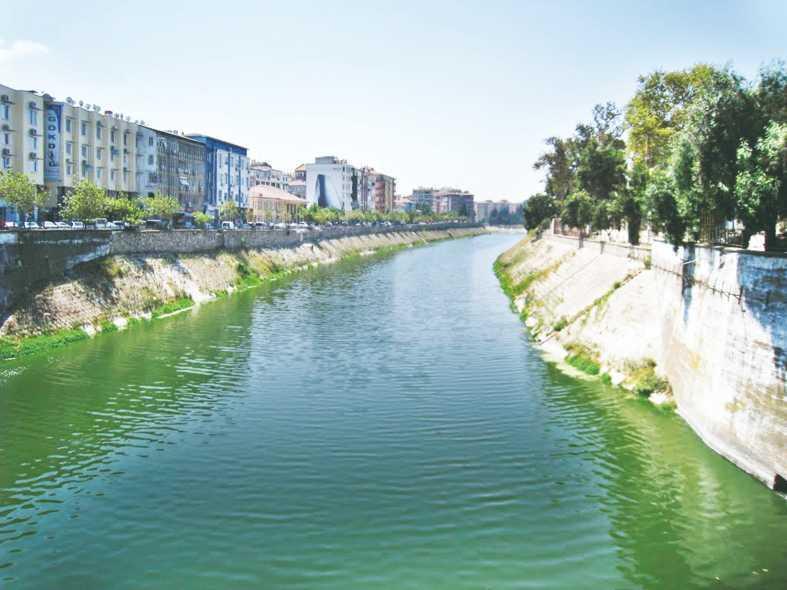
With the support of $1.8 million from Japan, the United Nations (U.N.) has started a new era in the fight against pollution in the rapidly polluted Orontes (Asi) River in the southern province of Hatay.
The United Nations Development Program (UNDP) started a new project aiming to protect the vulnerable marine ecosystem in Hatay, which has three goals, Nuri Bağdatlı, the portfolio manager of the climate action project prepared for Hatay and Meral Mungan Arda, the project coordinator, told daily Milliyet.
While it is primarily aimed at cleaning up the waste in the Orontes River, one of the aims of the project is to reduce the waste thrown into the river by improving the legislation and educating people, according to the experts.
It is also intended to combat the threat posed by the spread of water orchid, an invasive species that clogs rivers, degrades water quality and threatens the local fishing economy.
“The orchid usually meets the areas it will invade thanks to its large, purple and violet flowers which make it a popular ornamental plant,” said Bağdatlı and Arda, adding that the water orchid, which is an invasive species and poses a threat to biodiversity, has been spreading in the river since 2012.
However, the aim is to remove the water orchid from the area and bring it under control, as it affects the living things in the ecosystem by toxication of the water, they said.
The reason for choosing Hatay is the burden brought by the increasing population due to migration, according to the experts.
“Hatay, whose population increased unpredictably with the migration after the Syrian crisis and soared to 1.6 million, is one of the provinces where environmental pressure has increased, and waste management has become difficult for the municipality.”
“We are to protect and improve the environmental conditions in the city with the wastewater treatment plant we have established here and the work we will carry out in the river,” Bağdatlı and Arda said.
The experts also pointed out that the river brings loads such as domestic, food and plastic waste discharged from the villages along its route.
“Plastic waste, especially, is a big problem in terms of public health,” they added.
Earlier in December 2018, water orchids invaded the Orontes River. The orchids, which are widely considered as a dangerous pest as they can rapidly reproduce and use up all the oxygen in the river, also invaded the river in 2020 and 2021.
The 571-kilometer-long (355 miles) Orontes River begins in Lebanon’s Beqaa Valley and flows northwards through Syria before entering the Mediterranean Sea near Hatay’s Samandağ district, while the last 98-kilometer (58-mile) section of the river flows through Hatay’s Antakya district.
Homs, Hama and Jisr al-Shughur are among the most important cities on the Orontes as it is the chief river of the northern Levant.
The river’s waters run northward, which is the exact opposite direction of most other rivers in the region.